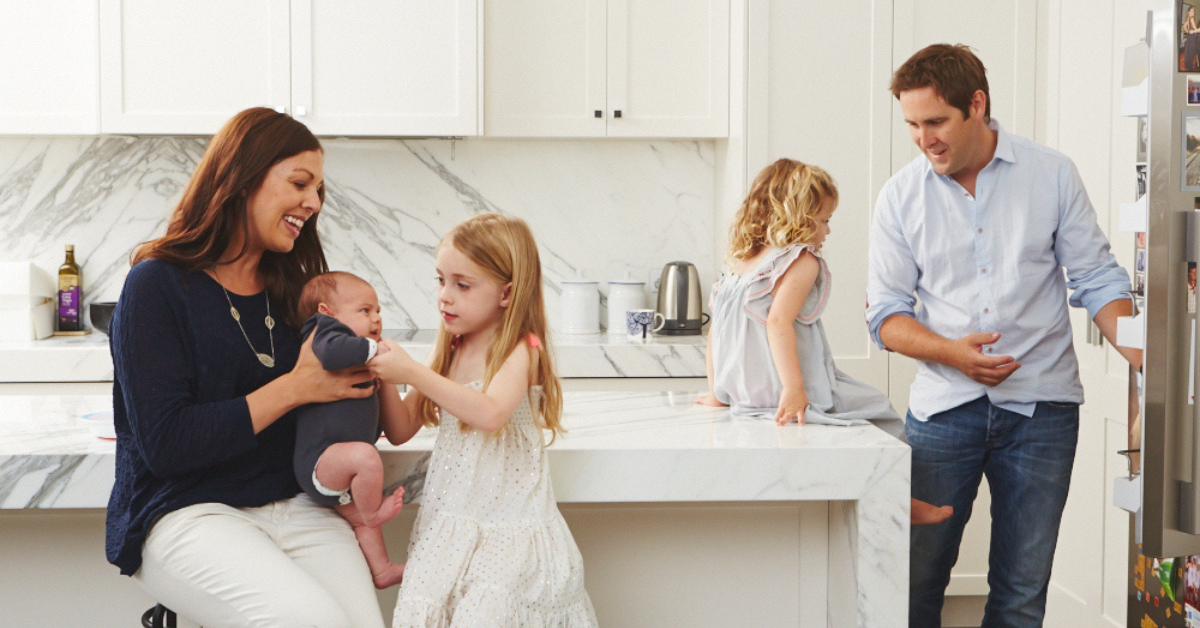It’s an open secret that employees with primary responsibility for caregiving are very likely to experience an impact to their career progression. Ambition bias, benevolent bias, the motherhood penalty and the parental wall are all prevalent forms of gender bias in our economy that impact caregivers in your workplace. Consciously addressing them can significantly improve your ability to attract, retain and promote a gender-balanced workforce, which is proven to positively impact performance, profitability and safety.
Yet many employers underestimate just how many of their employees are caring for others at home, making an assumption that we’re dealing with a minority group and a paid parental leave policy is the solution.
According to the research of Harvard Business School Professor Joseph Fuller, 73% of all employees have some type of caregiving responsibilities. And while women – mothers to be exact – assume the lion’s share of caregiving and therefore experience the strongest form of gender bias – it’s not just women who are impacted. Employees of all genders have caregiving responsibilities, whether that be for kids, elderly parents, spouses or significant others.
The pandemic changed how we work
In early 2020, as governments mandated work from home and kitchen tables doubled as classrooms, we launched a new offering ‘Finding Joy in the Juggle – Full House Edition’. Frankly, we were (happily) overwhelmed by the number of employees within our clients who accessed the support. It went on to trigger an explosion of virtual webinars, and the reimagination of Grace Papers as a career coaching platform to empower all employees with family and caregiving responsibilities, as well as their managers, to thrive. In particular, we saw a significant increase in engagement from men welcoming the opportunity to step into a more active caregiving role.
Of course, as workplaces have opened back up, and mandates to work remotely have been lifted, we’re navigating a whole new way of working. One we believe can accelerate gender equality. But getting it right at a time when managers are exhausted, women are burnt out and our poor immune systems mean it feels like our kids are at home as much as they were during lockdowns, is, as the numbers are showing us, easier said than done.
Recent research from Deloitte is a stark reminder of the urgency for leaders to prioritise policies and practices to retain the segment of their workforces who have been hardest hit throughout the pandemic – female caregivers.
Flexibility doesn't automatically solve pre-existing problems
Despite many workplaces embracing new ways of working, it is increasingly clear that in addition to the mental health toll the pandemic took on women, the introduction of new forms of flexibility – including hybrid and work from home forever – when not implemented properly, are detrimentally impacting women’s careers.
- 60% of women who work in hybrid environments feel they have been excluded from important meetings and almost half say they don’t have enough exposure to leaders.
- 94% of women believe that requesting flexible work will affect their likelihood of promotion. 90% believe their workloads won’t be adjusted accordingly if they request flexible-working options.
- 50% of women surveyed plan to leave their employer within the next two years.
If the way we were working prior to the pandemic wasn’t working, simply wrapping flex up with a different name and leaving your employees with family and caregiving responsibilities to do as they please is compounding the challenges women are currently facing.
Create hybrid that works for all
So, how do you get flexibility – hybrid – right in the post-pandemic world, and accelerate workplace gender equality?
- Clearly articulate a vision for flexibility that inspires employees to embrace it through a greater understanding of the behaviours, values, beliefs and symbols that will bring it to life. Your vision does the heavy lifting. Get it right, get your leadership team aligned on the purpose, and you will authorise your culture to bring it to life.
- Recognise the key barriers and introduce targeted measures to develop and retain your senior female talent, empowering them to flourish, by recognising their caregiving responsibilities and delivering coaching support: Caregiving disproportionately affects a company’s most experienced, highest-paid workers who are the most likely to leave a company because of irreconcilable tensions between the requirements of work and home. The costs of losing such well-regarded, experienced colleagues is significant at any time, but most especially now in a hot talent market. Beware too the domino effect of a few senior female leaders departing…
- Improve leadership literacy and skills in managing hybrid, managing caregivers and make it bias-free. New ways of working, and greater expectations of managers to support personalised flexible work arrangements for their staff, all resting on the shoulders of managers who are fatigued represent a great opportunity to develop and grow this cohort.
- Interrogate your data for gender bias and create an expectation that it’s ok to care, regardless of your gender: it often comes as a surprise that 1 in 3 men change jobs when they become caregivers. Regardless of whether they are fearful of being penalised because of their flex needs, or they can’t see other men balancing caregiving responsibilities with their career ambitions, it’s safe to say that normalising caregiving for all employees and ensuring they have the autonomy, trust and sponsorship to flex must be a priority.
- Prioritise equity & fairness: Level the playing field and ensure that Hybrid ways of working are not only positioned to clearly articulate the benefits of working remotely and coming into a workplace, but that hybrid is the expected way of working for everyone. For as long as you have a two-speed career development culture, you’ll be exposing your employees to discrimination and harassment, and exacerbating the gender pay gap.
Grace Papers offers coaching for your senior female talent, people leaders, parental leavers and more. Contact us to discuss your organisation’s coaching needs.




